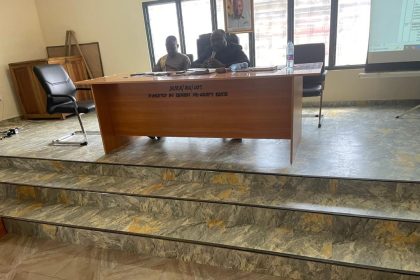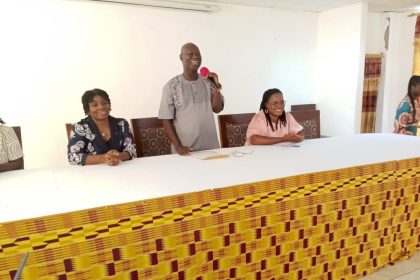The Meena Breast Cancer Foundation, an (NGO) has called on National Commission for Civic Education (NCCE) to integrate continuous breast cancer education into its civic programmes, warning that seasonal awareness is inadequate amid rising deaths across Ghana.
Mr Ibrahim Oppong Kwarteng, the Founder of the Foundation implored the Commission to consider as a matter of a national emergency and expand its public education mandate to include year-round breast cancer awareness.
He made the call in an interview with the Ghana News Agency (GNA), during a free breast cancer education and screening exercise at the Amina Mosque at Kasoa, where about 500 women participated.
“As you may be aware, breast cancer is on the increase in Ghana, and while there have been interventions, we still have a lot to do, the Government must do more to curb the spread,” he said.
Mr Kwarteng, who is also the Executive Director of Crime Check Foundation, described breast cancer as a “national tragedy,” requiring coordinated civic and health action beyond the usual October campaigns.
“Breast cancer is claiming lives every day, yet we only talk about it for one month in a year. This is a national crisis that demands a civic and public health response,” he said.
He said the NCCE must integrate breast cancer education into its routine community programmes, just as it did with HIV in the years back, explaining that the NCCE’s grassroots structures made it to be well-positioned to support nationwide behavioural change and awareness creation.
“If they partner with the Ghana Health Service and NGOs, we can reach every community and save lives,” he added.
Mr Kwarteng reiterated that breast cancer education must not be seasonal, stressing: “This is about saving lives and protecting families. Education saves lives, and it must happen every day, not only in October.”
Statistics from the Global Cancer Observatory (GLOBOCAN) 2022, shows that Ghana records an estimated 4,500 new breast cancer cases annually, with more than 2,000 deaths, which is about half of those diagnosed.
Dr Osman Alidu, a Senior Medical Officer at St. Martins de Porres Catholic Hospital at Agomanya in the Eastern Region, told the GNA that the situation reflected a broader health crisis that demanded urgent intervention.
“The World Health Organisation attributes Africa’s high cancer mortality to late-stage diagnosis, weak health systems, and limited awareness,” he said.
He said in Ghana, many women still report to hospitals only when the disease had advanced beyond early treatment.
He noted that breast cancer deaths in the country are rising due to late detection, financial challenges, and limited access to oncology care.
“The concentration of treatment centres in major cities like Accra and Kumasi also prevents early intervention for rural women,” he added.
Dr Alidu added that the causes of breast cancer are linked to hormonal, genetic, and lifestyle factors such as obesity, alcoholism, smoking, ionising radiation exposure from gadgets, reduced breastfeeding, among others.
“About 70 per cent of women present with late-stage breast cancer, and many do not survive beyond a few months after diagnosis,” he said.
Responding to Mr Kwarteng’s call, Ms Henrietta Glikpo, the Yilo Krobo Municipal Director of the NCCE, said the Commission was open to collaboration with health authorities and NGOs.
She said breast cancer awareness needed screening programmes, so they could partner with the health services, but the support should come from the health sector because of its speciality.
She stated that to enhance public education and screening on breast cancer, strengthened collaboration among the NCCE, Ghana Health Service, WHO, and civil society groups was vital to extend such services to rural and low-income communities, where myths and stigma persisted.
GNA





